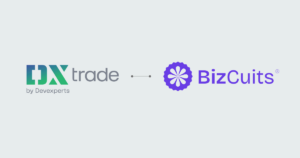How Forex Marketers Can Adjust to the New ESMA ruling – Guest Editorial
This year is turning out to be a very difficult one for brokers.

Charlotte Day is Creative Director at leading electronic trading industry content marketing agency Contentworks.
In January, the European Union began implementing the massive Markets in Financial Instruments Directive (MIFID II) program.
A few weeks later, the Financial Conduct Authority (FCA) started implementing a new policy on negative balance for forex brokers. The new policy asks brokers to have more capital to cover the no-negative balance guarantee.
Then came the onslaught from online giants like Google, Twitter, and Facebook. In January, Facebook was the first social network to ban ads relating to cryptocurrencies and other high risk financial products like binary options. A few days ago, Twitter followed suit and banned all ads relating to cryptocurrencies and certain CFD and options products and then along came Snapchat who did the same.
In March, Google moved to ban all cryptocurrency related ads from June 2018. It also moved to ban and place caveats for forex and CFD brokers. In the new rules, forex, binary and CFD advertisers will now require certification and some may even be ineligible.
At the same time, some online wallets have moved to restrict the transfer of funds to companies that offer such products. PayPal has banned its users from sending money to companies that provide cryptocurrencies services. In addition, companies like Visa and Mastercard have made it difficult for people to buy and sell cryptocurrencies.
So, what’s happened now?
A few days ago, the European Securities and Markets Authority (ESMA) passed new laws targeted at CFD and forex brokers. According to an update on its website, the authority will ban binary options and certain CFD products to EU customers.
The new measures are intended to protect customers who often rush to trade financial instruments based on the promise of quick riches.
Part of this argument is valid. According to research by ESMA and the National Competent Authority (NCA), between 74% and 84% of all retail traders lose between €1,600 and €29,000. They lose the money because of the complex nature of trading, a lack of education and sometimes because of the promises made by their brokers.
The new regulations will initiate a prohibition on marketing, distribution or sale of binary options to retail traders. They will also put a restriction on the marketing, distribution, and sale of CFDs to retail investors. The new restrictions will include features on leverage limits on positions, margin closes, negative balance protection, prevention of incentives by providers, and a firm-specific risk warning to potential traders.
Brokers will be required to reduce the current leverage on all the financial assets they offer. On major currency pairs, they may offer a maximum leverage of 30:1. Presently, companies offer a leverage of up to 500:1. On the non-major currency pairs, gold, and major indices, a maximum of 20:1 leverage will be offered while for commodities other than gold, the leverage will be 10:1. Individual equities and cryptocurrencies will require a leverage of 5:1 and 2:1 respectively.
This is huge news. I can remember when the bonus ban came into play and FX marketing teams across the land had to rethink their strategies. Leverage has, to some degree, become the new shiny object to tempt traders.
Apart from the leverage, companies will need to do more to protect consumers. For example, they will need a margin close out rule per account basis which will standardize the margin at which the brokers can close trades. This will be about 50% of the minimum required margin. On negative balance protection, brokers must do it on a per account basis, which will provide a guarantee on the limit traders can lose.
So, what next?
Ads – First, brokers must rethink or revise their online strategies for companies like Google, Facebook, and Twitter. Of course, halting ads is never ideal, however playing by the rules is necessary to avoid fines, account bans or worse.
Risk Warnings– Brokers must have a standard risk warning in place. Today, they do this, but the new regulations require them to include the actual percentage of losses that a customer can incur per trade.
Website – Brokers must start auditing their websites and removing the soon-to-be banned content. This needs to happen on websites, eBooks, videos and partner sites.
Inform Clients – Some will be heartbroken, but it must be done. Informing traders of the new leverage rules is necessary. It will also prevent traders from thinking they can shop around for a better leverage deal. They can’t.
Whilst the new policies are undoubtedly a blow to brokers, they may also instill confidence in cautious traders who will feel more confident that they are adequately protected. They will also remove further “scam” brokers from the market, especially those offering unrealistic leverage on crypto CFDs. The new rules are a chance for brokers to re-evaluate their marketing spend and move it to content such as video, PR, SEO based articles and native advertising. The latest ruling from ESMA is another reason to do this.
To attract high value traders with lower leverage will require a new strategy. Intelligent marketing will be the key to survival for brokers in 2018.
The subject matter and the content of this article are solely the views of the author. FinanceFeeds does not bear any legal responsibility for the content of this article and they do not reflect the viewpoint of FinanceFeeds or its editorial staff.









